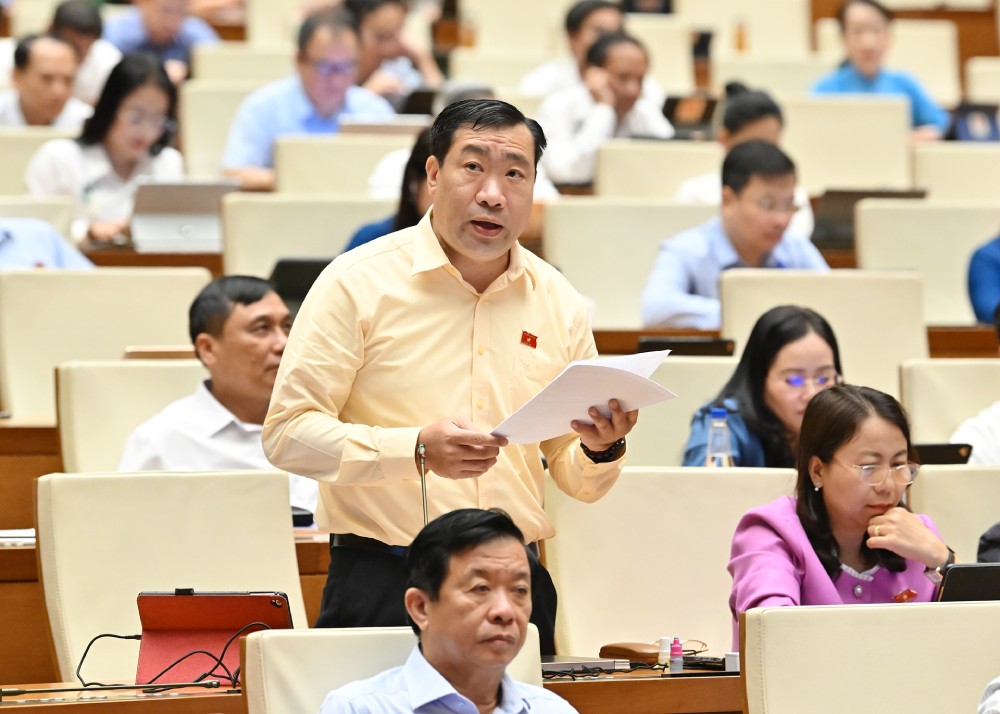On the morning of May 19, the National Assembly discussed in the hall the draft Law amending and supplementing a number of articles of the Law on Organization of People's Courts (TAND).
Delegate Nguyen Thi Viet Nga (Hai Duong Delegation) commented on the conditions and standards for appointing judges of the Supreme People's Court.
Point a, Clause 1, Article 96 of the draft law stipulates that one of the conditions for consideration for appointment as a Judge of the Supreme People's Court is "Age of 45 years or more".
The delegate said that setting such a standard for age groups is not really reasonable and needs to be carefully considered. Because age cannot be a measure of ability, qualities or experience.
Currently, in reality, there are many young but very talented, brave judges and judges with rich trial experience, who have solved many major cases and achieved many outstanding achievements during their work.
Therefore, limiting the minimum age may lead to "missing" people with sufficient standards and abilities but not the age required to appoint Supreme People's Court Judges.
Therefore, the delegate suggested that the age standard for 45 years and above should not be regulated as in the draft but should focus on standards on professional competence, working time, trial experience, and professional ethics to select people who can be appointed as Judges of the Supreme People's Court.
Or if there is still a need for an age limit, it is necessary to add a flexible mechanism such as special cases, people under 45 years old but who meet the conditions for capacity, outstanding achievements and are highly appreciated in their work can be considered for appointment as a Supreme People's Court Judge.

Delegate Thach Phuoc Binh (Tra Vinh Delegation) commented on the coordination and sanctions relationship between the People's Courts at the provincial and regional levels (on behalf of the District Courts).
In which, it has assigned the normal first instance trial to the regional court; Appellate rights and cassation for provincial Courts. However, delegates said that the monitoring and coordination mechanism between these two levels has not been clearly stated. Without clarifying the relationship and sanctions, it will lead to overlapping or open management.
If the provincial People's Court does not have an inspection mechanism with the Regional Court, the quality of trial at the grassroots level will be left unused. If the inspection lacks clear boundaries, it can cause internal conflicts of power, affecting the independence of the trial.
On the other hand, this also causes difficulties in managing, training, and transferring staff. The provincial court is currently the personnel coordination unit. If there is no coordination mechanism between these two levels, it will affect the quality of human resources and professional consistency.
According to the delegate, if there is no cross- supervision mechanism and no clear inspection sanctions, it will lead to a lack of a mechanism for monitoring trial quality, violating professional ethics, and failing to control negative risks at the first instance trial level.
Since then, the delegate proposed to supplement the task of the provincial Court to conduct periodic or irregular inspections with trial and settlement of cases for the Court of the region in the area. Report on inspection results and proposals to handle violations to the Chief Justice of the Supreme Court.











